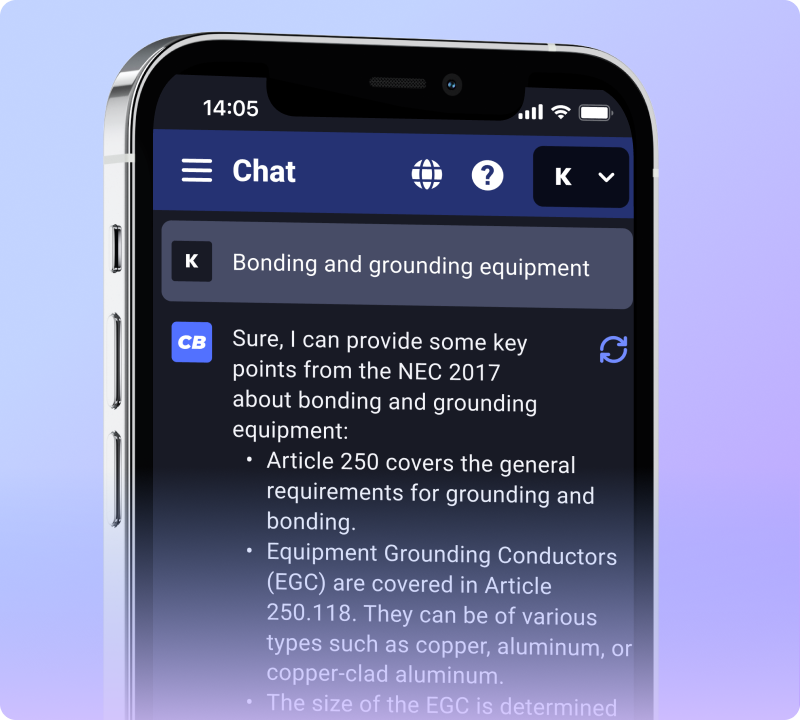Are you worried about keeping your home safe from electrical hazards? The 2023 NEC GFCI requirements offer crucial updates to ensure your safety. This article will guide you through the latest changes, helping you understand and comply with these new electrical code standards.
Keep reading for essential safety tips!
Key Takeaways
- The 2023 NEC updates require GFCI outlets in all kitchen receptacles, including those on walls and countertops, to prevent electric shocks.
- GFCI outlets quickly shut off power when they detect an imbalance in electricity flow, protecting against electrical hazards in moist areas like bathrooms and kitchens.
- Besides kitchens and bathrooms, the new NEC rules also demand GFCI protection in office break rooms and other locations where water exposure is likely.
- Understanding how GFCI outlets work is crucial; they monitor electrical currents for safety and cut off power within milliseconds if a ground fault occurs.
- Following the 2023 NEC codes for installing GFCI outlets ensures safety from electrocution risks across various settings, highlighting the importance of compliance.
Understanding GFCI Outlets and Their Requirements
GFCI outlets protect people from electrical shocks. They automatically shut off power when they sense a ground fault.
What is a GFCI Outlet?
A Ground Fault Circuit Interrupter (GFCI) outlet is a specialized device designed to protect individuals from electric shock in areas where water is present. The 2023 NEC GFCI requirements mandate their installation in locations such as kitchens, bathrooms, and office break rooms.
This safety feature monitors the electrical current flowing through the circuit and quickly shuts off power if it detects an imbalance, which could indicate a ground fault. Compliance with these regulations enhances electrical safety standards by preventing potential hazards.
The National Electrical Code (NEC) has updated its guidelines regarding GFCI outlet specifications to ensure better protection for appliances and users alike. For instance, all kitchen receptacles must now have GFCI protection according to recent code changes implemented in 2023.
These updates reflect a continued commitment to improving residential electrical safety and compliance across various settings while reducing the risk of serious injuries or fatalities due to electrocution.
Why are GFCI Outlets Required?
GFCI outlets are required to enhance safety in areas prone to water exposure, such as kitchens and bathrooms. The 2023 NEC mandates GFCI protection for all kitchen receptacles, including wall space receptacles and countertops.
This step addresses the increased risk of electrical shocks in these locations. Ground Fault Circuit Interrupters (GFCIs) help prevent serious injuries by cutting off electricity when a fault is detected.
The updated requirements in the National Electrical Code (NEC), particularly Section 210.8(B), reflect a commitment to improved home electrical safety standards. All residential electrical installations must comply with these regulations for effective ground fault protection.
As part of compliance with the latest NEC code changes, GFCI outlet requirements play a vital role in protecting users from potential hazards associated with damp environments and faulty appliances.
Where are GFCI Outlets Required?
GFCI outlets are essential in specific locations to ensure safety. According to the 2023 NEC, GFCI protection is mandatory for all kitchen receptacles, including those on walls and countertops.
This update reflects a commitment to enhancing safety standards in residential electrical requirements.
Other areas that require GFCI outlets include bathrooms and office break rooms. These updates aim to guard against electrical hazards where water or moisture is present. Compliance with these regulations helps protect individuals from ground fault circuit interruption risks, aligning installations with electrical code requirements outlined in Section 210.8 of the NEC.
How do GFCI Outlets Work?
GFCI outlets work by constantly monitoring the flow of electricity. They can detect any imbalance between the outgoing and incoming current. If a discrepancy arises, such as water coming into contact with the outlet, the GFCI will interrupt the circuit within milliseconds.
This quick action prevents electric shock and enhances safety in areas where moisture is present.
According to the 2023 NEC GFCI requirements, these outlets are mandatory for all kitchen receptacles, including those on wall spaces and countertops. The updated regulations emphasize ground fault protection in accessible locations like kitchens, bathrooms, and office break rooms.
Compliance with electrical code updates ensures proper installation and reliable performance of GFCI outlets for safeguarding against potential hazards.
2023 NEC GFCI Requirements
The 2023 NEC GFCI requirements bring new regulations for safety in electrical installations. These updates affect various types of outlets and ensure better ground fault protection.
Understanding these changes is vital for compliance with the National Electrical Code. Explore the details to stay informed on GFCI testing and installation practices.
Changes for GFCI Outlets
Significant changes for GFCI outlets have emerged under the 2023 NEC updates. New requirements now mandate GFCI protection for all kitchen receptacles, including wall space and countertops.
This adjustment highlights the NEC’s commitment to enhancing safety in kitchens, bathrooms, and office break rooms.
Essentially, GFCI protection must be provided as specified in Section 210.8(A) through (F). Other areas where ground fault circuit interrupter usage is critical include outdoor locations and basements.
Compliance with these updated regulations ensures better circuit protection against electrical shocks and improves overall safety standards across various settings. Up next are the updates concerning different types of outlets required by the latest NEC revisions.
Updates for Different Types of Outlets
The 2023 NEC has introduced crucial updates to GFCI requirements for various outlet types. All kitchen receptacles, including wall space and countertop outlets, now require GFCI protection.
This change aims to enhance safety in areas prone to moisture and electrical hazards. In addition, the code specifies that GFCI must be provided in other readily accessible locations as outlined in Section 210.8(A) through (F).
Compliance with these regulations is essential for ensuring a safe environment in homes and workplaces, particularly concerning appliance protection and circuit interruption standards.
These updates extend beyond kitchens to include bathrooms and office break rooms, reflecting a broader push for increased ground fault protection across different settings. The integration of AFCI requirements also highlights the NEC’s commitment to comprehensive electrical safety measures amid evolving technology and usage patterns.
Familiarity with these updated GFCI regulations helps ensure adequate compliance with the National Electrical Code (NEC) while safeguarding users from potential electrical risks.
Importance of Complying with NEC Codes
Complying with NEC codes is crucial for ensuring safety in electrical installations. The 2023 NEC GFCI requirements mandate protection for all kitchen receptacles, including those on countertops and wall spaces.
These updates aim to enhance safety in areas like kitchens, bathrooms, and office break rooms by providing ground fault circuit interruption (GFCI) protection as specified in Section 210.8(A) through (F).
Neglecting these standards can lead to dangerous situations due to electrical hazards.
Compliance helps prevent potential accidents caused by faulty wiring or equipment. Recent changes also emphasize the importance of readily accessible locations for GFCI outlets. Failure to follow updated electrical codes can result in serious injury or damage, making adherence key for both homeowners and electricians alike.
By prioritizing NEC compliance, individuals contribute significantly to creating safer environments across different settings.
Conclusion
The 2023 NEC GFCI requirements significantly enhance electrical safety standards. These updates specifically target kitchen receptacles and other areas commonly used with water. Compliance with these codes is essential for protecting people from electric shock hazards.
Stay informed about the latest changes to ensure your installations meet the necessary safety regulations. Embracing these requirements not only safeguards individuals but also promotes a more secure living environment.
FAQs
1. What are the 2023 NEC GFCI Requirements?
The 2023 NEC GFCI Requirements refer to updates in the National Electrical Code (NEC) that mandate Ground Fault Circuit Interrupter (GFCI) installation for specific areas and appliances.
2. How do these requirements affect kitchen receptacle protection?
The changes brought by the 2023 NEC require enhanced groundfault protection, specifically targeting kitchen receptacle protection to ensure safety against electrical mishaps.
3. Are there any new rules about appliance GFCI protection in the updated codes?
Yes, as per the 2023 NEC code updates, certain types of appliances now need to have a dedicated Ground Fault Circuit Interrupter (GFCI) installed for their safety.
4. Where can I find more information on these electrical codes and standards?
A comprehensive guide detailing all aspects of the 2023 NEC changes including GFCI installation and other relevant standards is an excellent resource for understanding these updates.

